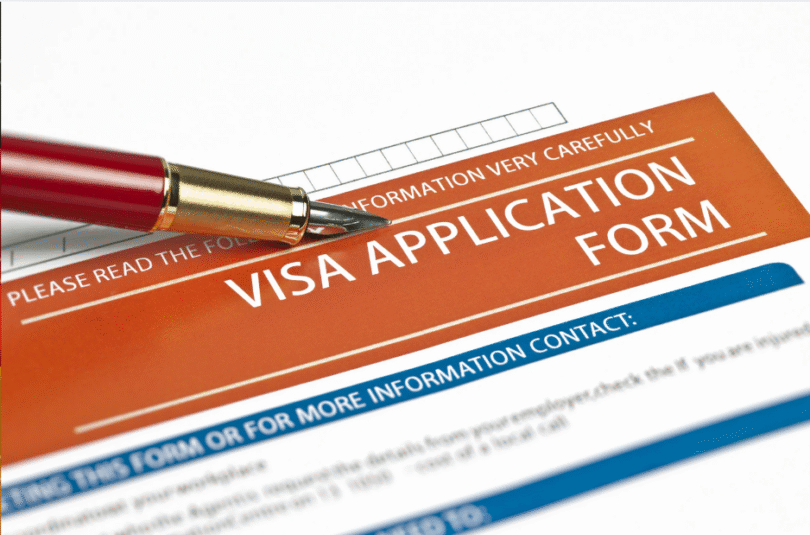Yes, it’s possible, and in this article, you’ll learn exactly how.
If you’re married to or in a relationship with a New Zealand citizen or resident and you’re dreaming of joining them without paying high visa fees, you’re in the right place. The process might seem confusing at first, especially with all the forms, rules, and costs involved, but just keep reading because in this blog article, we will take you through the steps to apply for a spousal visa in New Zealand in 2025 to make it all easy for you.
Understanding the Spousal Visa
In New Zealand, a spousal visa is commonly referred to as a Partner Visa. It allows the partner of a New Zealand citizen or resident to live, work, or visit New Zealand. There are three main types:
- Partner of a New Zealander Visitor Visa
- Partner of a New Zealander Work Visa
- Partner of a New Zealander Resident Visa
Each visa type has specific requirements and benefits, so it’s essential to choose the one that best fits your situation.
Partner of a New Zealander Visitor Visa
This visa lets you visit your partner in New Zealand for a short period. It’s a good option if you wish to join your New Zealand resident or citizen partner and stay as a visitor even if you may or may not have lived together for long
This Visa:
- Allows you to stay for up to 24 months
- Lets you explore the country and spend time with your partner but you can’t work
- Is ideal for couples who are newly dating, engaged, or long-distance
Requirements:
- Prove that your relationship is real and ongoing
- Show plans to spend time together in New Zealand
- Your partner needs to support your application
- You may need to show that you’ll return home after your visit
Partner of a New Zealander Work Visa
This visa allows you to live and work in New Zealand while being with your partner.
This Visa:
- Is an open work visa: you can work for any employer.
- Allows you to study for up to 3 months
- Is typically valid for 1 to 2 years, depending on how long you’ve lived together (2 years if you’ve lived together for over 12 months, 1 year if it’s less than 12 months)
- Can be a step toward permanent residency
Requirements:
- Evidence of living together (joint bills, rent agreements, etc.)
- Proof of relationship (photos, communication, travel together)
- Support from your partner
- Your partner must live in New Zealand throughout your stay in the country
- Medical and police checks
Partner of a New Zealander Resident Visa
This is the path to permanent residency in New Zealand as the spouse or partner of a citizen or resident. It is a good option for your if you plan to settle down and live permanently in New Zealand
This Visa:
- Grants you residency status — live, work, and study permanently
- May lead to New Zealand citizenship after a few years
- Can allow you sponsor family members later
Requirements:
- Very detailed proof of your relationship and cohabitation (for 12 months or more)
- Your partner must be able to sponsor you
- Good health and character (police and medical checks)
How to Get a Free or Almost-Free Spousal Visa in New Zealand (2025)
1. Apply from a Fee-Exempt Country
Some countries have agreements or policies with New Zealand that waive visa fees for certain applications.
How does it work?
- New Zealand sometimes offers reciprocal visa fee waivers for citizens of specific countries.
- If your country is one of them, you may not have to pay standard visa application fees.
Examples:
- Pacific Island nations like Samoa, Tonga, and Tuvalu often benefit from reduced or waived fees.
- Countries that are part of Commonwealth arrangements sometimes qualify too.
You can check if your country qualifies for a visa fee waiver on the official Immigration New Zealand website.
2. Apply Before Fee Increases (Early Submission Strategy)
New Zealand’s visa fees increased on 1 October 2024, but some applicants may still qualify under the older, lower fees if they submitted early or through a pre-approved process.
How does it work?
- Applicants who submitted before 1 October 2024, or who are applying under transitional arrangements, may avoid paying new fees.
- Some categories are still in review, and a few may retain discounted rates into 2025.
If you are already in New Zealand or applied through an agent earlier, confirm whether you’re eligible under pre-October 2024 pricing.
3. Get Your Partner to Sponsor You (No Need for You to Pay Directly)
If your New Zealand partner is financially stable, they can act as your official sponsor and cover all visa-related costs.
How does it work?
- The visa application is still paid for — but not by you.
- Your partner takes financial responsibility by filling out a Sponsorship Form for Temporary Entry.
If your partner is a New Zealand government employee, military personnel, or in a humanitarian role, you may also be eligible for additional support.
4. Apply Through a Community or Church Sponsorship Program
In some cases, registered community or church organizations in New Zealand can sponsor immigrants, especially if your partner is part of their group.
How does it work?
- You’ll need to prove that your relationship is supported by your local church or community.
- Some registered sponsors are allowed to cover or assist with immigration costs under humanitarian, family, or compassionate grounds.
These cases are rare but possible if your partner is active in community leadership, volunteer work, or religious service.
5. Apply During a Fee-Waiver Campaign or Policy Review Period
Immigration New Zealand sometimes introduces temporary visa fee waivers to attract more immigrants or support family reunifications.
How does it work?
- These waivers are often announced during natural disasters, global events, or post-election policy changes.
- In 2025, New Zealand is reviewing immigration reforms. New family-friendly visa policies are expected, especially after elections or budget allocations.
Subscribe to official immigration updates to apply immediately when temporary waivers become available.
6. Apply Under Humanitarian or Compassionate Grounds
If you or your partner are facing serious hardship, you may apply for a visa under humanitarian grounds, where fees can be waived.
How does it work?
- Situations may include health issues, domestic violence recovery, political instability in your country, or financial inability.
- You must submit strong supporting evidence and a request letter for fee exemption.
This is handled case-by-case, and approval depends on the decision of an immigration officer.
7. Use an Immigration Support Service or NGO
Certain non-profit legal aid and immigration support organizations in New Zealand help migrants apply for visas at no cost.
How does it work?
- These groups often work with refugees, low-income applicants, or victims of abuse.
- They can help you fill out the forms, gather your evidence, and even cover your fees through sponsorships or government partnerships.
Examples:
- Community Law Centres
- Refugee and Migrant Service NGOs
- Legal Aid-funded immigration lawyers
How to Apply
Step 1: Gather Necessary Documents
Collect all required documents, including:
- Valid passport
- Proof of relationship
- Medical certificates
- Police certificates
- Evidence of financial support or sponsorship
Ensure all documents are up-to-date and accurately reflect your current situation.
Step 2: Choose the Right Visa Type
Decide which visa suits your situation:
- Visitor Visa: If you plan to stay temporarily.
- Work Visa: If you intend to work in New Zealand.
- Resident Visa: If you aim for permanent residency.
Each visa type has specific requirements and benefits, so choose the one that aligns with your goals.
Step 3: Submit Your Application
Apply online through the Immigration New Zealand website. Ensure all information is accurate and complete. Incomplete or inaccurate applications can lead to delays or rejections.
Extra Tips to Minimize Costs
- Use Online Resources: Avoid hiring agents by utilizing free online guides and resources.
- Prepare Thoroughly: Ensure all documents are in order to prevent delays or additional costs.
- Stay Informed: Regularly check the Immigration New Zealand website for updates.
- Apply Early: Submitting your application before fee increases can lead to significant savings.
Frequently Asked Questions (FAQs)
-
Can I work in New Zealand on a Partner Visa?
Yes, if you apply for the Partner of a New Zealander Work Visa, you can work in New Zealand. This visa allows you to work for any employer in New Zealand.
-
How long does the visa process take?
Processing times vary, but it’s advisable to apply well in advance. As of December 2024, the processing time for partnership residence applications is around 7 months.
-
Is there an age limit for applying?
There is no specific age limit, but you must meet all other eligibility criteria.
-
Can same-sex couples apply?
Yes, New Zealand recognizes same-sex relationships for partner visas.
-
What if we’ve been in a relationship for less than 12 months?
You may still apply, but the visa duration might be shorter, and additional evidence may be required.
-
Do I need to be married to apply?
No, de facto relationships are also recognized, provided you can prove the genuineness of your relationship.
-
Can I study on a Partner Visa?
Yes, you can study for up to 3 months. For longer study periods, a student visa is required.
-
What happens if my application is declined?
You can reapply, but ensure you address the reasons for the initial decline and provide any additional required information.
Conclusion
Getting a spousal visa in New Zealand in 2025 doesn’t have to cost you a fortune, or anything at all, if you know the right steps to take. While the visa itself isn’t officially “free,” there are several smart and legal ways to avoid paying the fees, especially if you explore sponsorships, fee exemptions, or support through community programs and humanitarian grounds.
The New Zealand government places a high value on family unity, so if your relationship is real, you’re already halfway there.
Remember, love knows no borders, and with the right information, neither should your future. So breathe easy, take that first step, and let New Zealand welcome you both with open arms.






